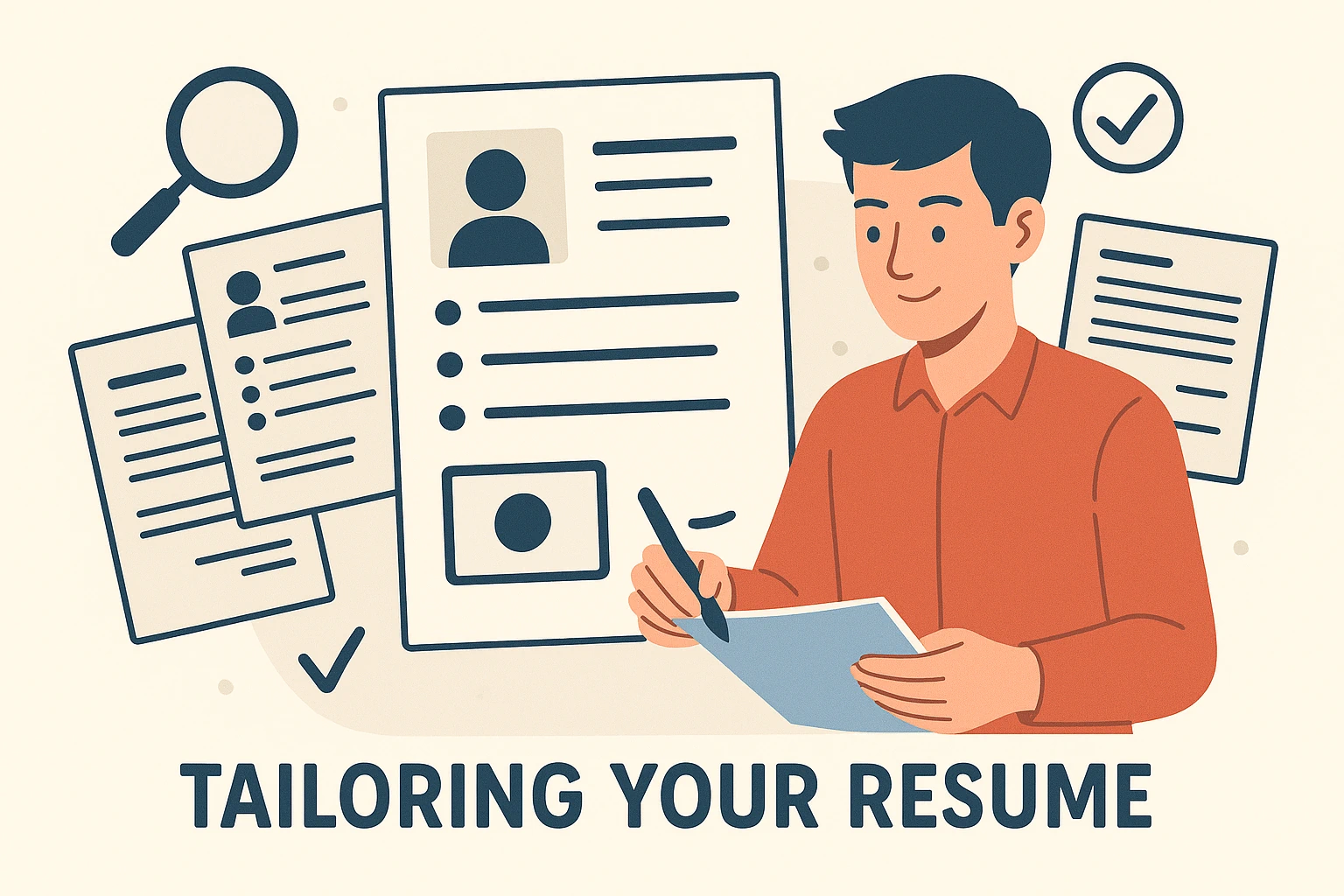1. Standing Out in Group Interviews
Mastering a group interview is pivotal for showcasing your team play and interpersonal skills during your job hunting voyage. Much like solo interviews, group interview dynamics can seem challenging initially, but with tried-and-tested group interview strategies, you can make a lasting mark.
1.1 Set Yourself Apart in Group Interviews
Imagine a room full of people striving to display their best. The competition not only brings out the best in you but the group setting of the interview can offer invaluable insights about the company’s job culture. This article takes you on a journey from preparing for a group interview to shining in one.
1.2 Holistic Strategy For Your Job Hunt
Remember, a group interview is just one facet of the bigger picture in your job hunting and interview preparation voyage. Utilize our comprehensive guide to explore more facets and construct a holistic job hunting strategy.
2. The Method Behind Group Interviews
From saving resources to gauging interpersonal skills, group interviews serve several purposes for businesses. As part of your interview preparation, understanding why businesses use this format helps you perform better.
2.1 The ‘Why’ of Group Interviews
Often utilized by businesses to weed out the perfect candidates, group interviews shed light on how you perform under pressure, whether you play well in teams, and how well you handle group interview dynamics.
2.2 Prepping for Group Interviews
Now knowing the Why, the How becomes critical. Understand the setting, what’s expected from you, and how to deliver it. Rounding up a solid strategy can make all the difference in group interviews. By the way, we’ve covered some pretty effective techniques for managing interview anxieties here. Worth a read for a stress-free approach towards interviews!
Navigating group interview dynamics with poise and confidence lets you turn the tense group scenario into an opportunity to outshine the competition. So, stay tuned for our next sections, which delve into concrete plans for acing group interviews.
3. Preparing for a Group Interview
3.1 Thorough Company Research
Doing your homework about the company is not limited to solo interviews. In a group interview, your knowledge about the company’s services, products, culture, and values is equally, if not more, critical. This research can give you an insightful edge not only while answering questions but also during discussions. In group settings, you’re not only addressing the interviewers with your responses but also communicating with fellow candidates, using this knowledge to steer the conversation and highlight your assertion.
3.2 Anticipating Group Interview Scenarios
Group interviews can spiral into unforeseen scenarios – expect the unexpected. Companies might put you in hypothetical situations, problem-solving tasks, or even initiate debates. The key is not to overpower but to contribute meaningful ideas, respect others’ viewpoints, and work towards the common goal. These situations put your team player skills on display. Remember, your mindful behavior speaks louder than just your words.
3.3 Maintaining Interview Etiquette
Coming off as respectful and professional is hugely impactful in group settings. Be punctual, dress professionally, be polite to everyone around, listen attentively, and maintain a confident body language. Your behavior should subtly convey that you’re there not just to compete, but to learn and contribute. From your entry to your closing statement, let your good manners echo.
4. How to Stand Out in a Group Interview
4.1 Making the Right First Impression
Your confidence and positivity can project a strong first impression. From greeting everyone with a warm smile to maintaining good posture, portray a positive, confident self-image. Address everyone in the room while speaking and maintain soft yet firm eye contact. Let your balanced confidence do the initial talking!
4.2 Balancing Active Listening with Assertiveness
In a group interview, you’re being observed on many fronts. Listen attentively to the interviewer and respond in a manner that reflects your understanding of the question. When in dialogue with the group, be assertive yet considerate of others’ viewpoints. The balance of active listening and assertiveness assertions in your responses can make you stand out amidst competition.
4.3 Showcasing Teamwork
A group interview also focuses on your ability to work as part of a team. Displaying empathy, openly communicating, encouraging others, appreciating their viewpoints, and taking a stand shows your potential as a team player. Show the team that you comprehend the importance of collaboration, and can make valuable contributions.
4.4 Demonstrating Leadership Without Dominating
Your leadership qualities in a group setting are a mirror to your potential performance in the company’s team. So, strive to shine through as a leader. Suggest ideas, be solution-oriented, take initiatives, inspire others, but do not dominate. You can lead by example, prove your worth, and yet maintain your humility.
Remember that balance is the key to standing out positively in group interviews. Demonstrating your leadership potential while being a team player can make you a front-runner in this race. Combining these group interview strategies with the right mindset paves a sure-shot path to success.
5. Common Group Interview Questions and How to Answer Them
Employers often use group interviews to see how candidates perform under pressure, how they react in real-time to new situations, and how they interact in a team environment. As such, the questions asked in group interviews often revolve around these areas.
5.1 Addressing Problem-solving
Problem-solving is a common theme in group interview questions. For instance, you may be presented with a hypothetical business problem and asked to come up with a solution collaboratively. In such situations, contribute your ideas clearly and openly, show appreciation for others’ input, and strive for a balanced and cooperative resolution.
5.2 Showcasing Teamwork
Employers may ask questions about your experience working in teams or dealing with team conflict. When responding, frame your answers in a way that highlights your teamwork and collaboration skills. Use examples from your past experiences where you positively contributed to a team scenario.
5.3 Leadership Potential
A group interview could also include questions or activities that assess your leadership potential. This is your chance to exhibit your initiative, problem-solving capability, and motivation skills, but remember not to overshadow others in the group. True leaders lead while lifting others along.
5.4 Communication Skills
Communication is pivotal in group dynamics. You might be posed with questions or tasks that test your ability to communicate your ideas effectively in a group, your ability to persuade or negotiate, or your aptitude to resolve communication gaps. Tackling these with poised communication and active listening can significantly enhance your image in the eyes of the interviewer.
6. Don’ts in a Group Interview
Group interviews are a different ballgame than one-on-one interviews. The dynamics involve other candidates, making it crucial to avoid certain behaviors that can negatively affect your performance.
6.1 Dominating the Conversation
While it’s essential to be proactive and ensure your voice is heard, dominating the conversation can reflect negatively on your ability to work in a team. Balance is crucial – contribute to the conversation, but also allow space for others’ contributions.
6.2 Negative Body Language
Non-verbal communication plays a significant role in interviews. Avoid negative body language such as crossing your arms or legs, avoiding eye contact, or frowning. These signals can make you seem distant or uninterested.
6.3 Disrespecting Others
Group interviews are high-pressure situations, and candidates are often trying to stand out. However, it’s fundamental to show respect for the other candidates and their ideas. Agreeing or disagreeing professionally and respectfully will do more to boost your candidacy than any number of good answers.
6.4 Lack of Preparedness
Just like any other interview, coming unprepared to a group interview can land you in a difficult spot. Prepare ahead, understand the company and its requirements, anticipate potential scenarios, and practice with mock group interviews.
In the next sections, we’ll talk about what to do after the group interview is over. It’s equally essential to stay engaged during the post-interview phase. Our all-inclusive guide on post-interview steps is a fantastic place to start. Stay tuned!
7. Post Group Interview: What to Do After
Now that you have successfully navigated the group interview dynamics, your work isn’t fully completed. The post-interview phase allows you to leave a lasting impression on the interviewing panel in a subtler way.
7.1 Making Your Gratitude Known
A thank you note or an email following the interview is a polite gesture that shows appreciation for the opportunity. Every panel member whom you interacted with should receive a personalized note of acknowledgment. This exhibits your interpersonal skills and appreciation of the team’s time.
7.2 Reflect on The Process
Post-interview reflection is an excellent opportunity for self-growth. Identifying your strengths and areas for improvement prepares you better for future interviews. If some parts of the group interview felt challenging, don’t hesitate to check out the anxiety handling guide or the various resources in our comprehensive guide for job hunting and interview preparation.
8. Key Takeaways
- Preparation Is Key: Be it understanding the company culture, practicing probable questions, or analyzing group interview dynamics, coming prepared is half the job done.
- Balance Is Crucial: Striking a balance between asserting your ideas and being a team player is important. Show the interviewers that you can lead when needed, and also follow when required.
- Communication Matters: Your verbal and non-verbal communication should reflect confidence, respect, and engagement at all times.
- Reflection for Growth: Any interview, including group interviews, is an opportunity for self-improvement. Always reflect on your performance to identify areas of growth.
The prime focus of a group interview is to understand your interpersonal skills. While preparing, always keep in mind the underlying premise – it’s as much about exhibiting your teamwork skills as it’s about standing out.
Equipping yourself with these strategies paves a confident way ahead not only in group interviews but your overall journey in job hunting and interview preparation. Good luck!


